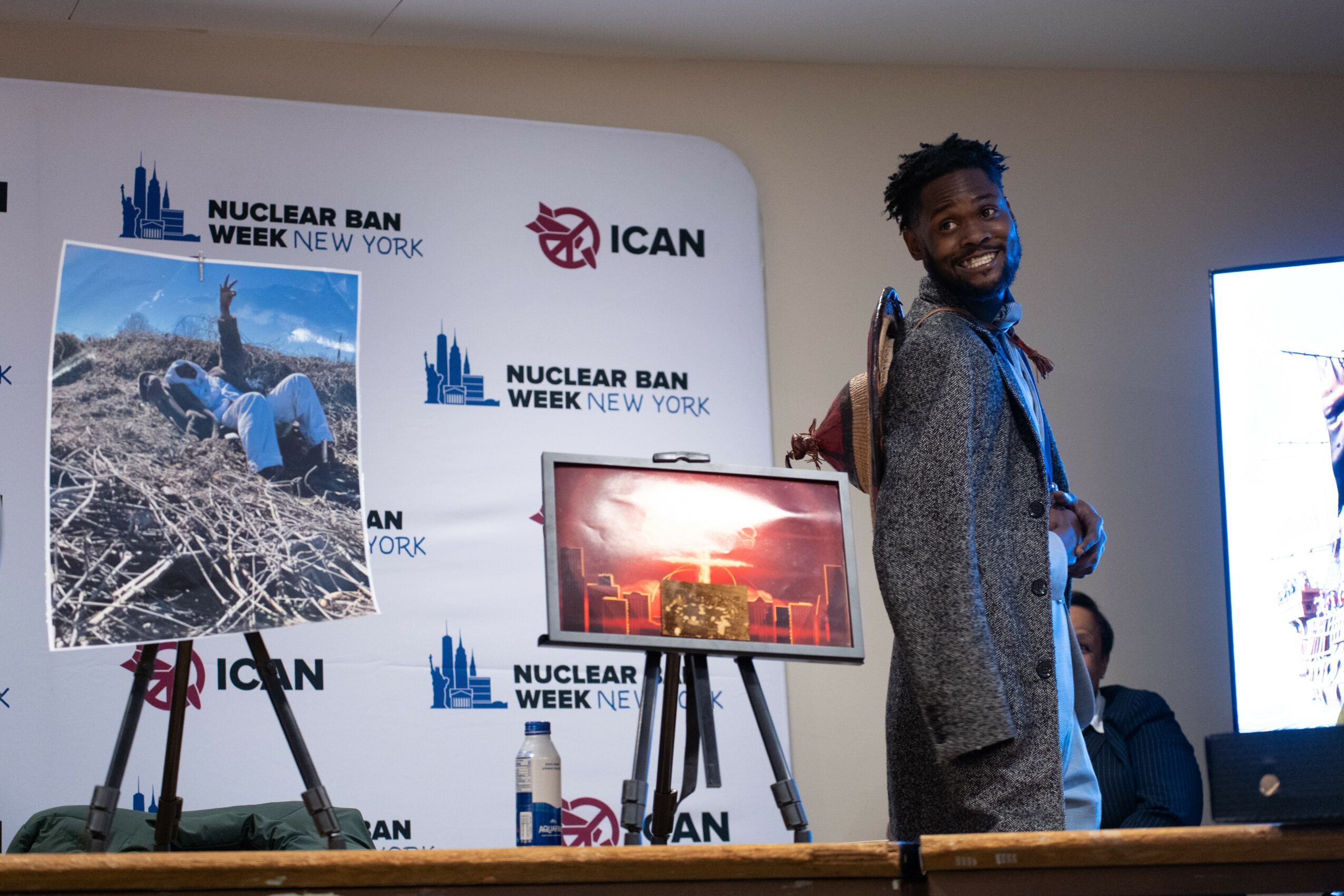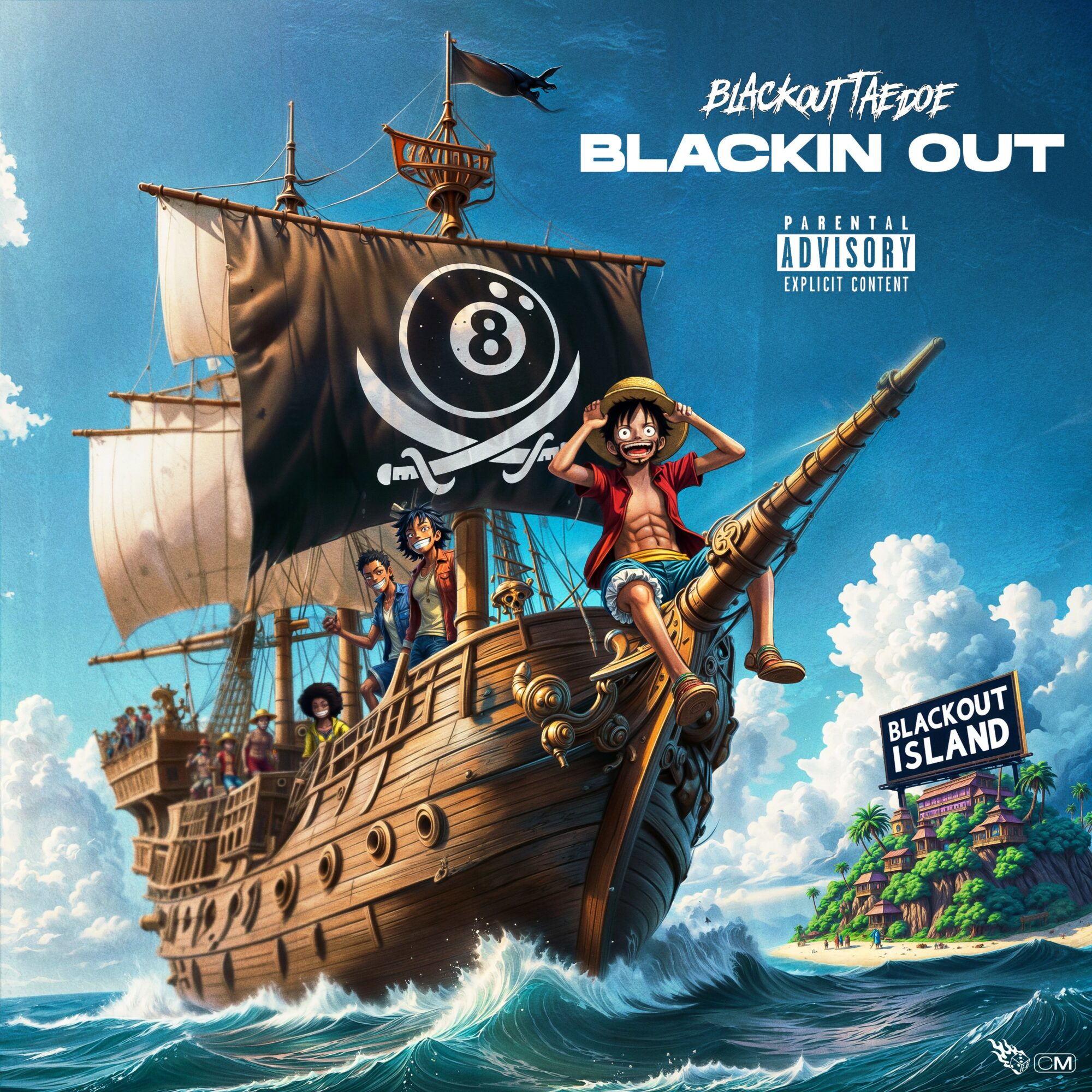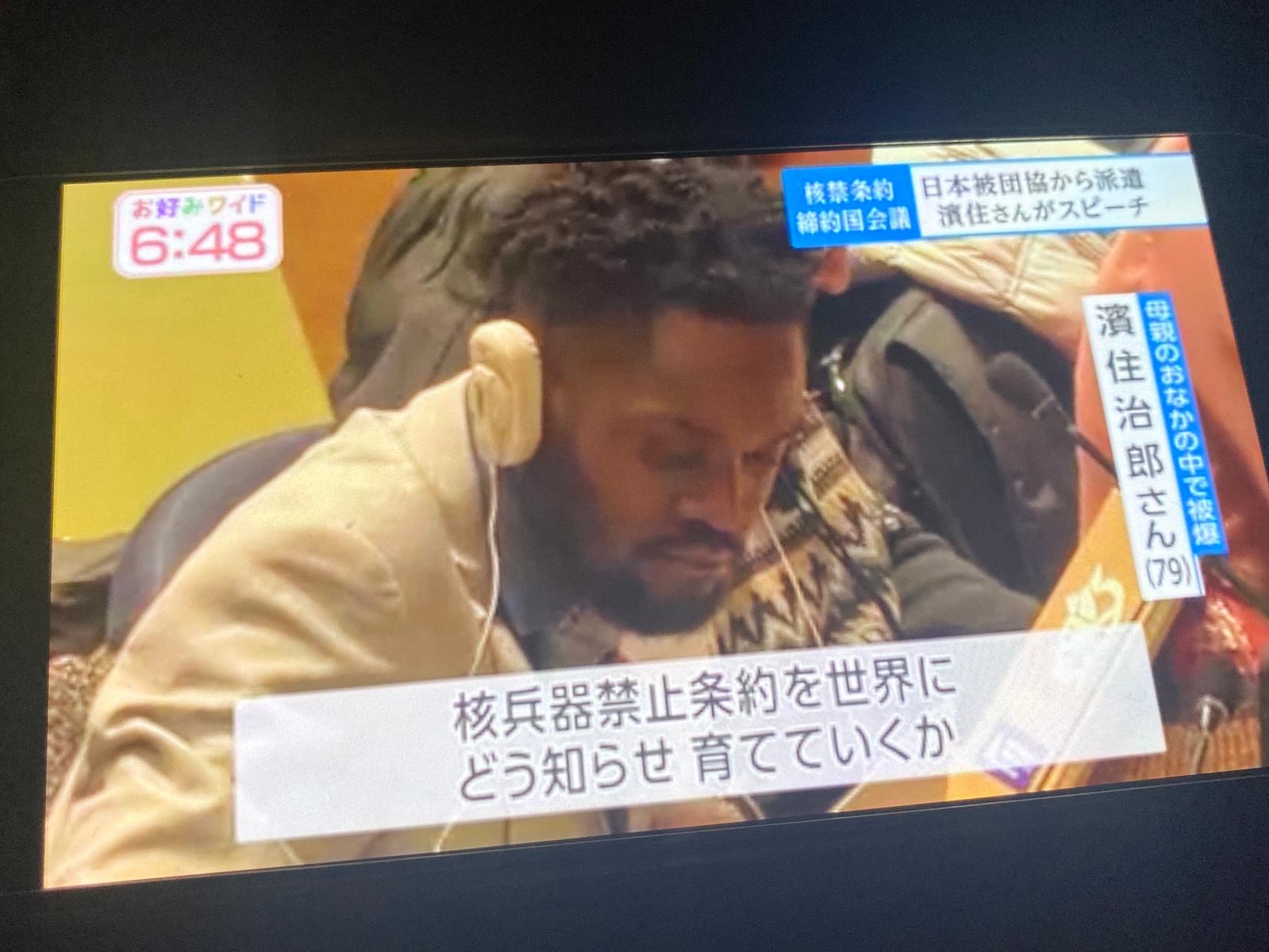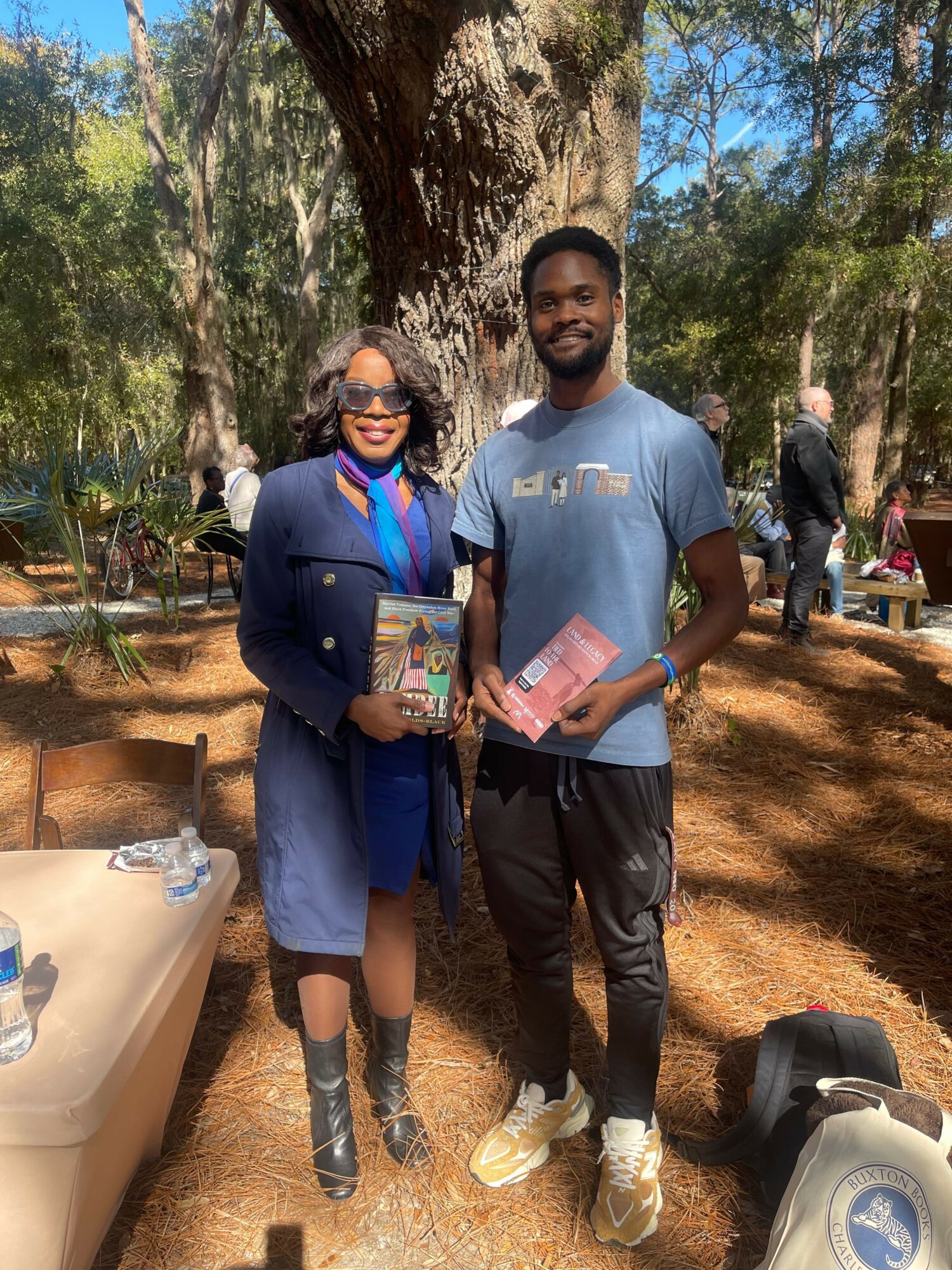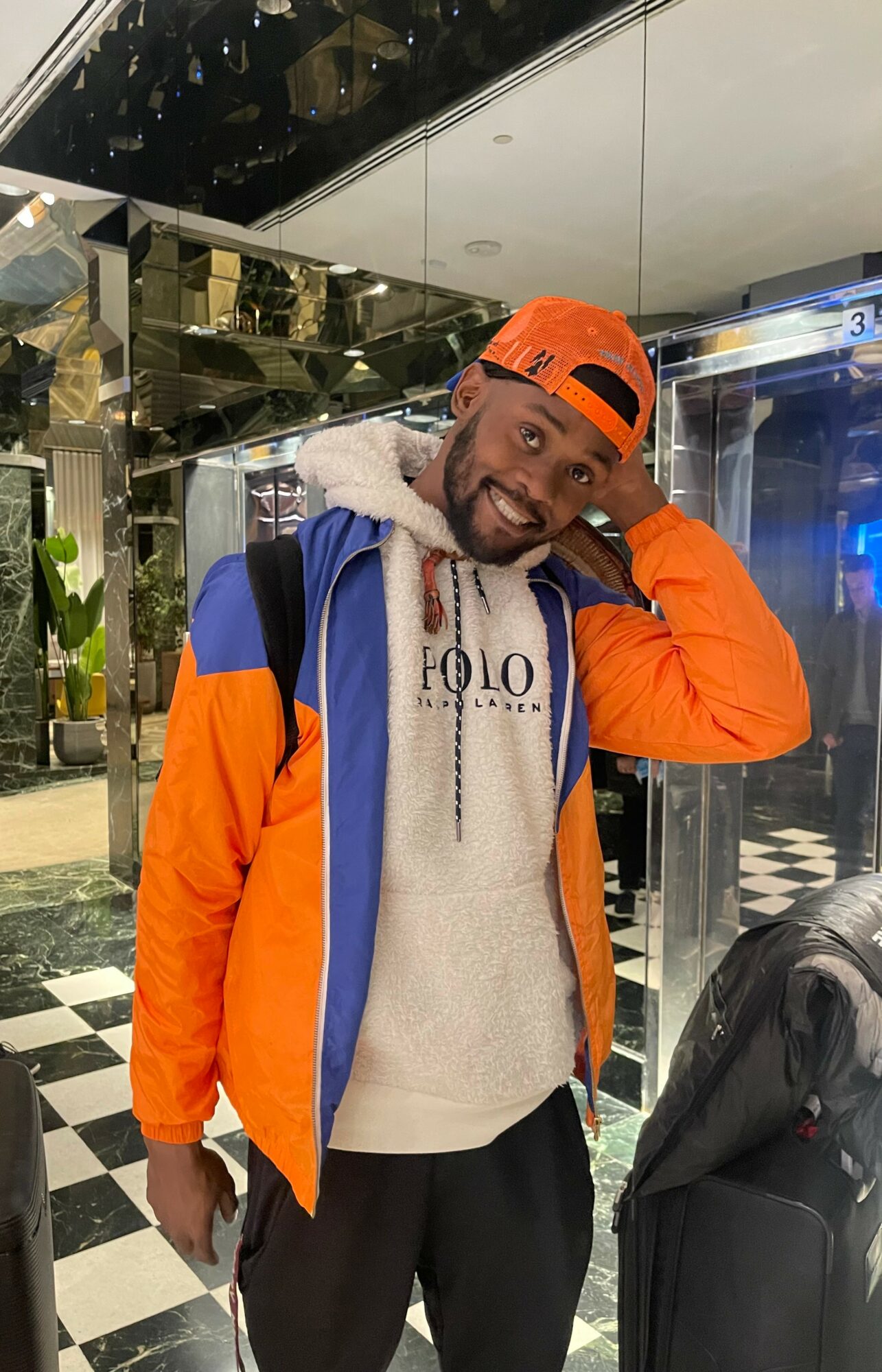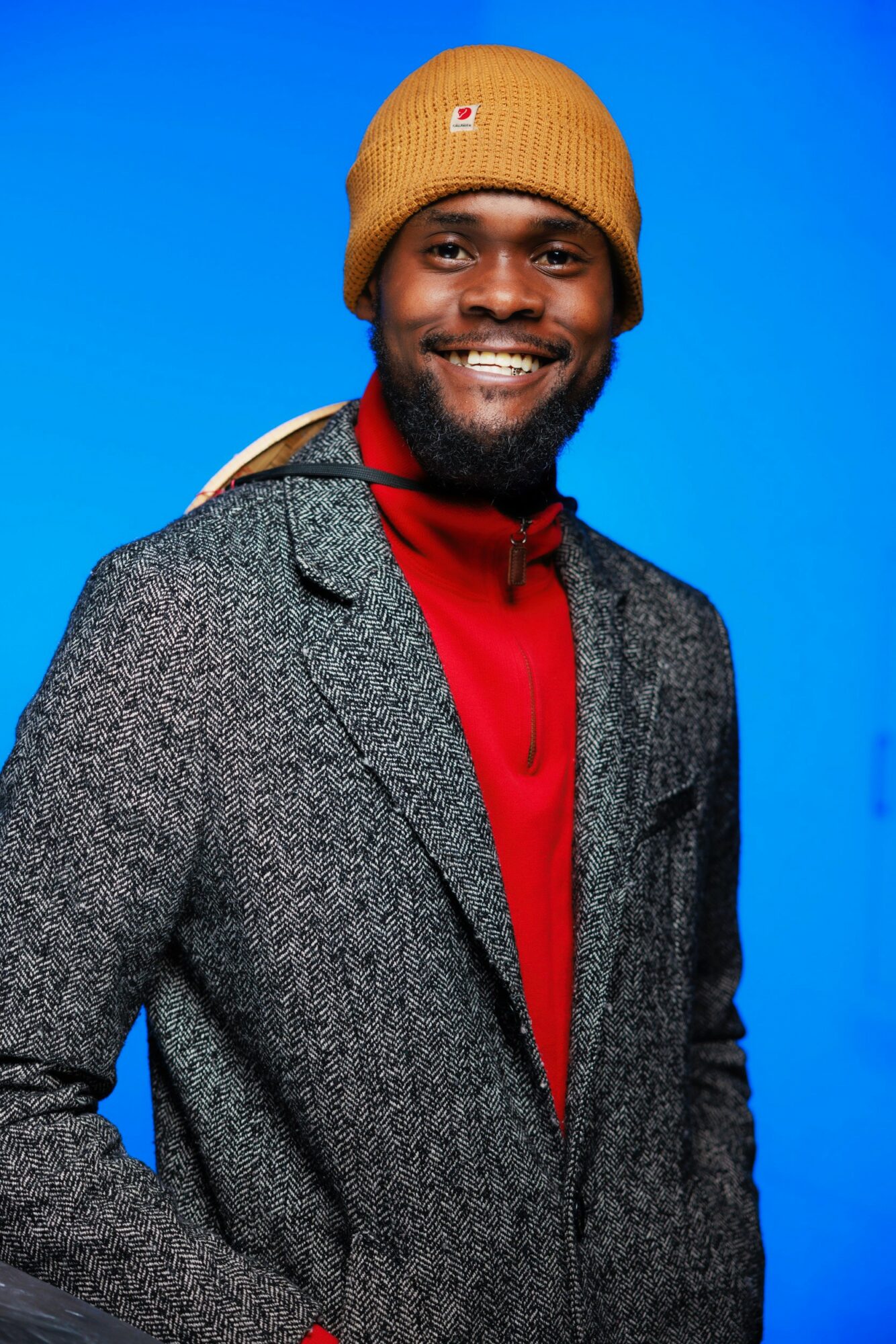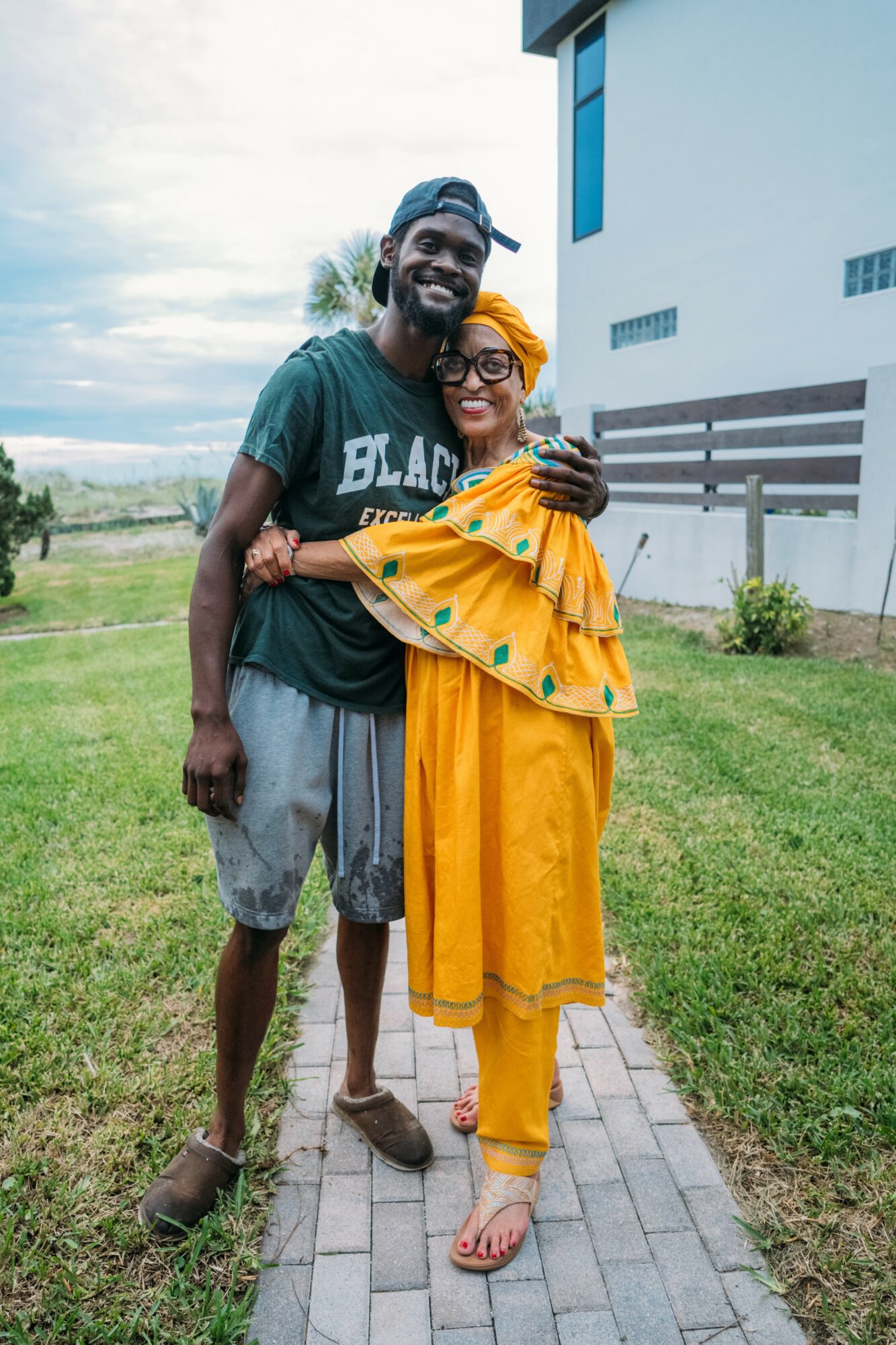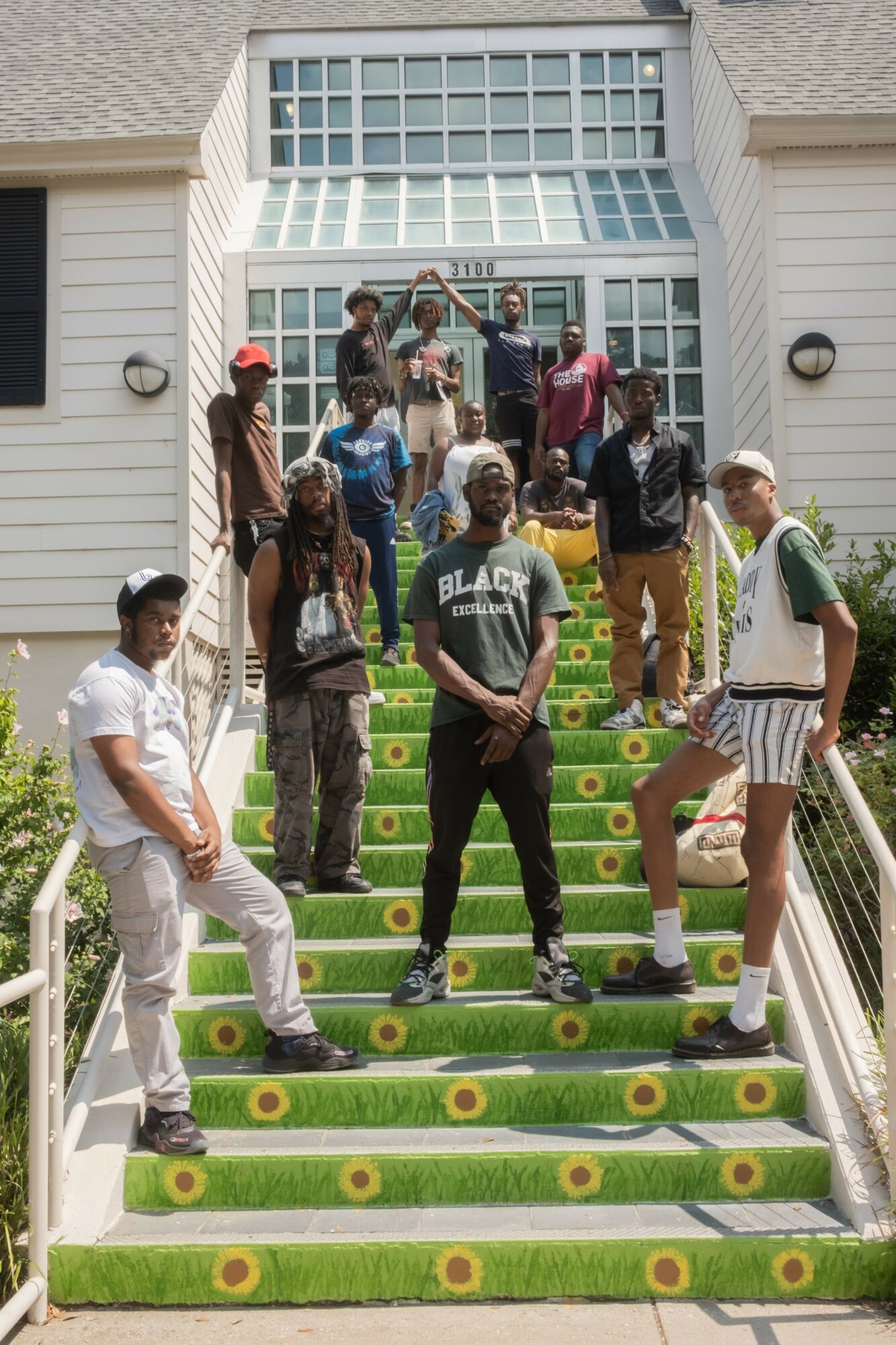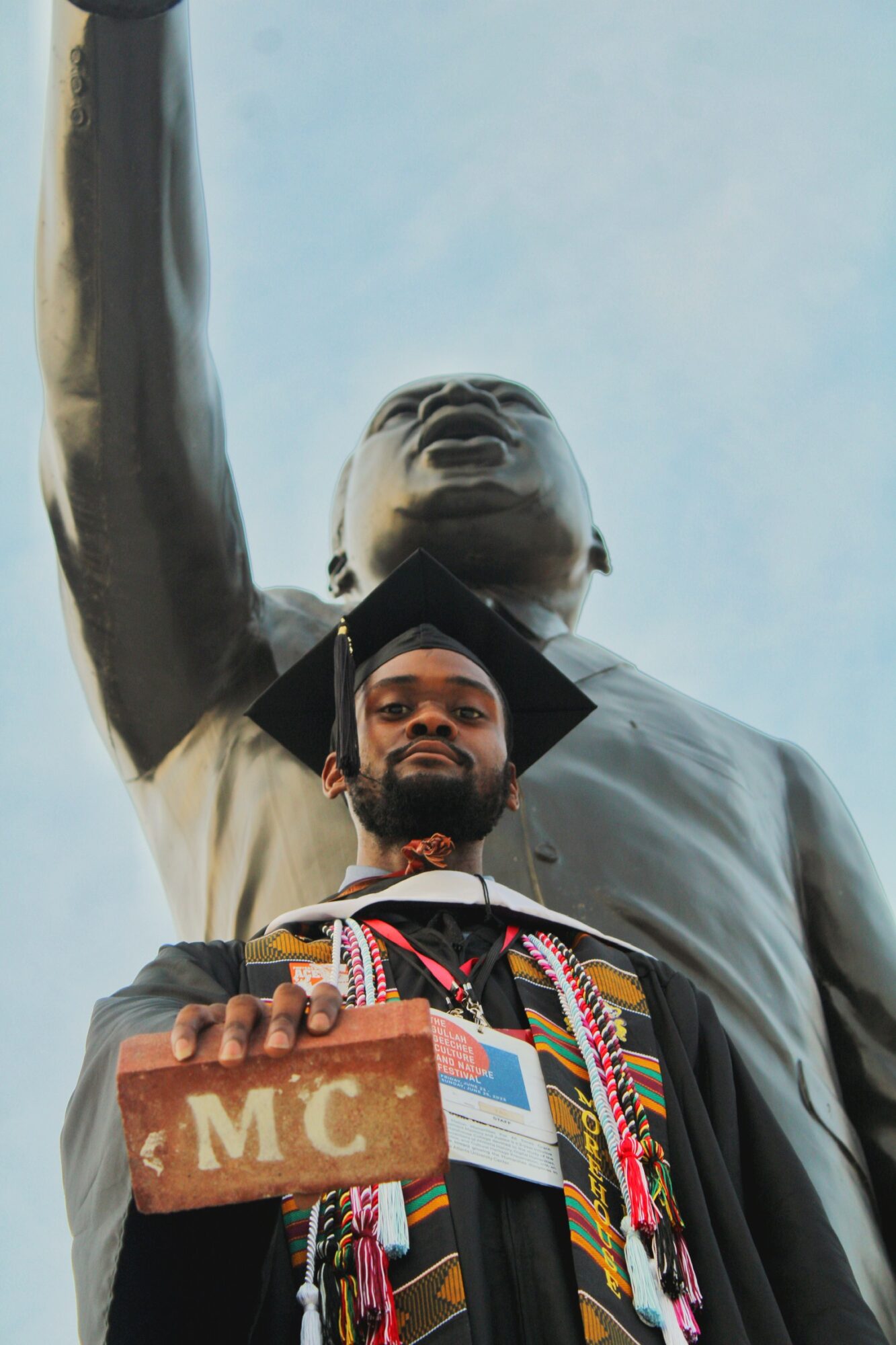

Today we’d like to introduce you to James Height Jr..
James, we appreciate you taking the time to share your story with us today. Where does your story begin?
On January 2nd, 1999, I was born in Greensboro, North Carolina—the same city where the Greensboro Four made history at the Woolworth’s lunch counter. I am the eldest of the three Height brothers—Solomon and Joshua being the younger of the set. My life began in the shadow of legacies I couldn’t yet understand, and I never imagined I’d grow to carry them forward through music, scholarship, peace, and international diplomacy.
My parents were only nineteen when they had me, doing their best to figure out how to make life work while building a family and a future at the same time. Because of that, I spent my first year of life with my paternal grandmother, Alisa, while my mother enrolled at Bennett College for Women. She was accepted into Bennett’s early childhood education program, and I became one of the first children to attend The Children’s House on campus—the first five-star learning laboratory for children in North Carolina. It was during that time that my parents came under the mentorship of Dr. Johnetta B. Cole and Dr. Alma Adams, two women who would later shape my academic path and spiritual direction at Morehouse College.
Before the Army, my parents faced the kind of uncertainty that often follows young Black parents trying to make ends meet in the South. The military became their pathway to stability, but stability came with sacrifice. My brothers and I grew up moving from place to place—military bases, small southern towns, new schools every few years—constantly adapting. My father, a Bronze Star recipient and the first Black man to serve as CJ1 at the NATO School in Germany, and my mother, a commander who helped build schools for Afghan women, raised us on discipline, compassion, and resilience. We lived with the hidden hardships of being what’s known as “Hidden Helpers”—children of two disabled veterans still expected to lead and excel. Those experiences taught me that survival was an act of strategy, and faith was the blueprint that made it possible.
When I first came to Morehouse College in 2017, I wasn’t ready for the weight of my calling. I failed classes, lost housing, and drifted between cities just trying to survive. Financial aid errors, delayed veterans benefits, and food insecurity made it nearly impossible to stay enrolled. With two 100% disabled Army officers as parents, my situation didn’t fit any category the system knew how to support. What should’ve taken four years took me eight. I worked countless jobs just to keep going and learned more about perseverance than any textbook could teach.
But grace has a way of recycling pain into purpose. In 2022, I re-enrolled at Morehouse for what I knew would be my final attempt. It was then that I joined the Movement, Memory, and Justice program led by Tendaji Bailey, a Morehouse alumnus and community organizer across the Gullah-Geechee corridor. That program changed my life. Through it, I learned that I am a ninth-generation descendant of Gullah-Geechee ancestors on both sides—rooted in Obedience Applewhite, an enslaved woman from North Carolina, and George Applewhite, Vice Captain of the Lowry Gang who resisted Confederate law. From that moment, my studies became an act of reclamation.
I went on to log over 920 hours of certified field research—the most in Morehouse history—documenting oral histories and cultural traditions across the Sea Islands. I studied at the Johns Island Preservation Field School under the Mellon Foundation and co-authored scholarship on Gullah-Geechee social contracts and African diaspora theory. My research led me to the National Park Service, where I created a digital audio tour of Harriet Tubman’s Combahee River Raid, blending sound, story, and descendant memory.
But my path expanded beyond academia. As Blackout Taedoe, I transformed hip-hop into a form of diplomacy. In 2025, I became the first documented hip-hop artist to perform at a United Nations nuclear disarmament conference—the Treaty on the Prohibition of Nuclear Weapons. I performed my song “No Cursin’” before 59 nations and 163 civil society organizations to prove that music could elevate without profanity—and that culture can disarm more than weapons, it can disarm hearts.
Since then, I’ve represented PEAC Institute, Students for Nuclear Disarmament, and Back from the Brink as a youth delegate and advocate for peace. My work bridges Gullah cultural traditions with global dialogue—connecting young people from Atlanta to Hiroshima, from the Lowcountry to Uganda—using art as a common language for healing and justice.
Today, I see my mission clearly: to merge faith, heritage, and innovation into a new model of leadership. Every lyric, lecture, and policy brief I create echoes one belief—our ancestors didn’t just survive history; they built the blueprints for transformation.
From trap houses to think tanks, from fast-food shifts to the floor of the United Nations, my journey has proven that struggle can birth strategy. I stand as both a product and a continuation of my family’s 265-year legacy of education, resistance, and reform.
I’m not just telling stories about change—I’m living one.
I’m sure it wasn’t obstacle-free, but would you say the journey has been fairly smooth so far?
No, it hasn’t been a smooth road—far from it. My journey has been built on detours, delays, and divine redirection. I come from parents who started life as nineteen-year-old kids just trying to make it work. The Army gave our family stability, but it also meant constant relocation, long separations, and learning how to rebuild community every few years.
At Morehouse, I faced challenges that most people never see—financial aid complications, housing insecurity, food scarcity, and the confusing reality of being a child of two 100 % disabled Army officers in a system that didn’t quite know where to place me. I was academically separated twice, worked multiple jobs to stay afloat, and lived through moments when graduation felt impossible.
But every obstacle refined me. The instability taught me empathy. The setbacks taught me patience. The silence taught me faith. It took me eight years to graduate, but that time transformed me from a student chasing a degree into a man living his purpose. My path wasn’t straight, but it was sacred.
Thanks for sharing that. So, maybe next you can tell us a bit more about your work?
As an artist and creative, I exist at the intersection of culture, history, and transformation. Under the name Blackout Taedoe, I use hip-hop as a tool for education and liberation—proof that art can carry truth into spaces where policy and power meet. My work lives between sound and scholarship, between rhythm and revolution.
In 2025, I became the first documented hip-hop artist to perform at a United Nations nuclear disarmament conference, performing my song “No Cursin’” before 59 nations and 163 civil-society organizations at the Treaty on the Prohibition of Nuclear Weapons. That moment turned the floor of the United Nations into a classroom—showing that hip-hop can disarm more than weapons; it can disarm hearts.
Beyond music, I serve as a National Park Service Digital Experience Intern at the Reconstruction Era National Historical Park, where I created an immersive audio tour of Harriet Tubman’s Combahee River Raid, blending descendant voices, soundscapes, and historical narration.
I’ve also become recognized for my Gullah-Geechee scholarship and cultural research, logging over 920 hours of fieldwork—the most in Morehouse College history—through programs like the Johns Island Preservation Field School (College of Charleston x Mellon Foundation). My academic journey reached new heights when I presented two in-person papers at the International Gullah Geechee and African Diaspora (IGGAD) Conference, becoming the first known scholar to do so in concurrent sessions.
My peace advocacy work continues through the PEAC Institute, Students for Nuclear Disarmament, and Back from the Brink, where I represent the next generation of youth diplomats building bridges from Atlanta to Hiroshima. I now co-author chapters on African cultural theory and diasporic social contracts alongside my mentors, helping preserve the very heritage that raised me.
I believe, what sets me apart is purpose. I’ve lived through struggle, studied its roots, and turned survival into strategy. Whether I’m behind a microphone, in a field school, or writing policy briefs, my goal never changes—to heal, to educate, and to use art as a universal language for freedom.
Networking and finding a mentor can have such a positive impact on one’s life and career. Any advice?
Mentorship, for me, has never been about chasing titles—it’s about recognizing alignment. Every great teacher in my life appeared when I stopped performing strength and allowed myself to be teachable.
My first mentors were my parents, who modeled resilience and discipline. Later, it was women like Dr. Johnnetta Betsch Cole, who taught me that leadership and love are inseparable, and Queen Quet, who reintroduced me to my Gullah-Geechee roots with pride and purpose. I’ve also been guided by brilliant scholars like Dr. Samuel Livingston and Tendaji Bailey, who saw potential in my chaos and helped me turn pain into policy and poetry.
If I’ve learned anything, it’s that mentorship is a dialogue, not a transaction. You don’t find mentors by asking for help—you attract them by working in your purpose. The right people will always appear when your commitment outweighs your comfort.
Pricing:
- Speaking Engagements & Guest Lectures — Rates vary by institution, location, and audience size
- Artistic Performances / Collaborations (Blackout Taedoe) — Custom quotes based on project scope and venue
- Workshops & Cultural Education Sessions — Tailored packages available upon request
- Consulting (Heritage, Policy, and Creative Strategy) — Pricing determined per engagement
- Media & Partnership Opportunities — Please contact directly for collaboration inquiries
Contact Info:
- TikTok: https://www.tiktok.com/@mr8lackout
- LinkedIn: https://www.linkedin.com/in/james-d-height-jr-172ab314b
- Youtube: https://youtube.com/@blackouttaedoe
- Other: https://music.apple.com/us/artist/blackout-taedoe/1608720278
